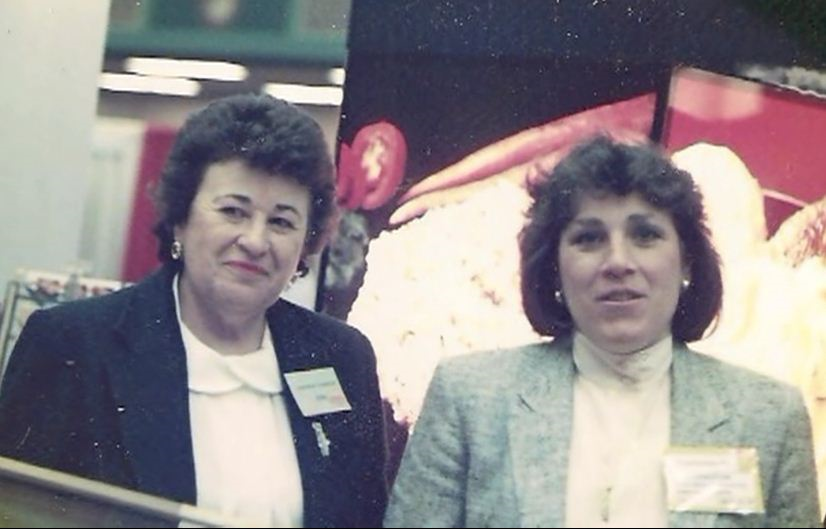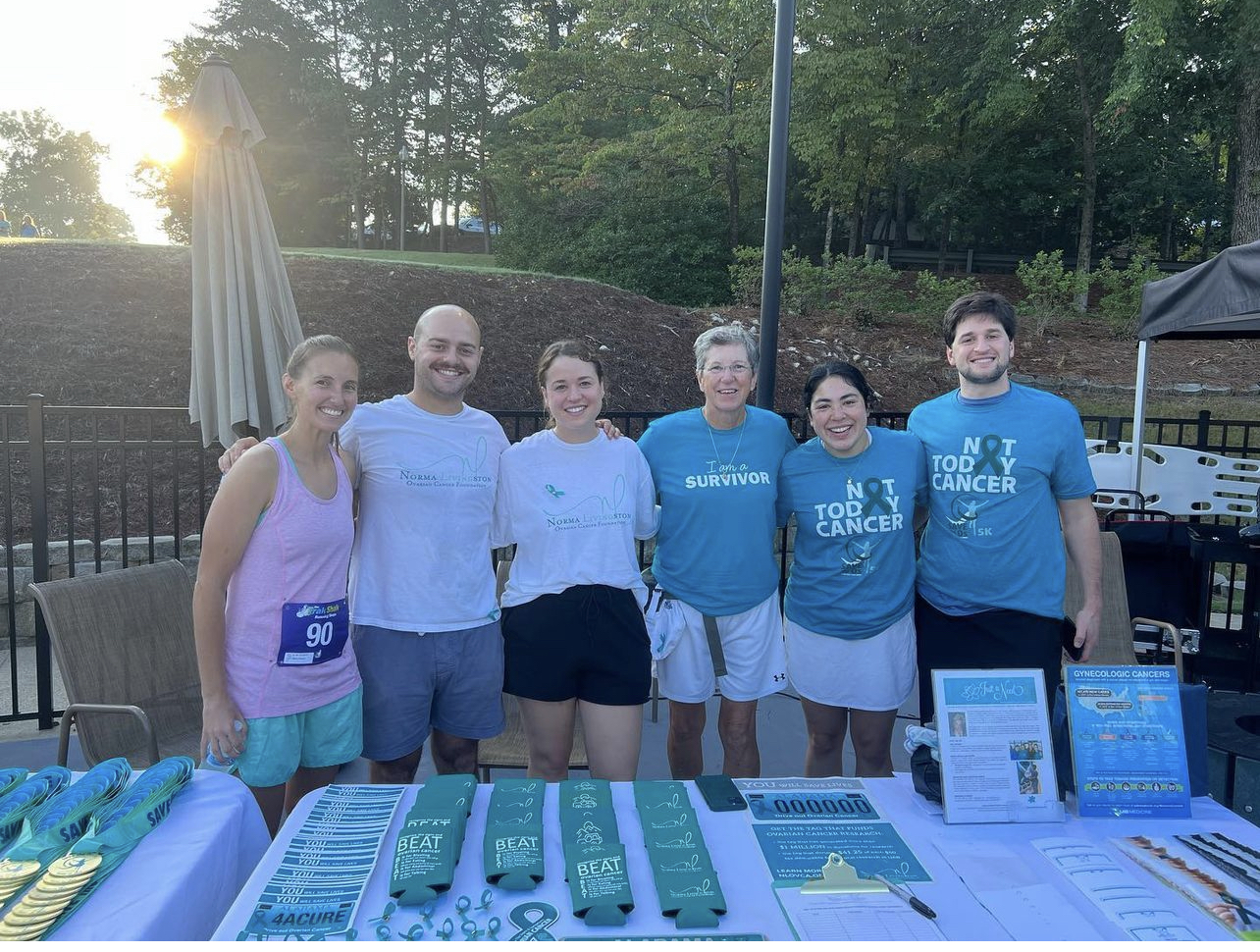Norma was a healthy, active 65-year-old woman who was rarely sick and had always been proactive about her health. She went to her internist complaining of weight gain, abdominal discomfort, and a chronic cough. When the diagnosis was finally made, Norma had stage 4 ovarian cancer. She endured nine hours of surgery, countless rounds of chemotherapy, and experimental drugs. Thirteen months later, she passed away, leaving three wonderful daughters behind.
Norma’s daughter, Lori Livingston, shared, "My mom was my best friend. She was kind to everyone, smart, inclusive, and had a passion for volunteering. She instilled in us these wonderful traits. When she was diagnosed with ovarian cancer, it felt like her options were limited, and we lost her too soon. I've made it my passion to find a cure and help every woman live a longer life." In honor of her mother, Lori founded the Norma Livingston Ovarian Cancer Foundation (NLOCF) in Birmingham, Alabama in 2004. The mission of the NLOCF is to raise funds for ovarian cancer research and to increase awareness about the risks, symptoms and treatments of this disease.

Norma and her daughter Lori Livingston
When asked about the mission of the NLOCF as well as her own experience, board President Kim Evans reflected, “This October marks my 10th year as an ovarian cancer survivor—or I like to use the term NED (No Evidence of Disease). I don’t like that I had ovarian cancer, but I respect what it has taught me. During my journey, the NLOCF was there the entire way. The NLOCF offered me help and hope during my hardest times. The NLOCF gave me the opportunity to help others, to serve, and to help fight this disease as a board member and President. I am grateful, and I look forward to watching this foundation grow and to help others grow through this disease.”

Kim Evans with NCLOF Junior Board
Through the sale of the Alabama Driving out Ovarian Cancer car tag, the NLOCF has raised over $1.8 million to fund research at the University of Alabama at Birmingham’s (UAB) Division of Gynecologic Oncology and other cancer centers in the state. When asked about the partnership, Dr. Charles Leath, the UAB Division Director of Gynecologic Oncology shared, “This partnership has been critical in not only raising awareness, which happens every time one sees the license plate, but also in funding important research initiatives that may allow us to better understand the 'why' of ovarian cancer.”
Through individual donors, special events, and foundation support, additional funding has been raised to directly support ovarian cancer patients. For instance, in 2019, under the guidance and direction of partners at UAB, the NLOCF implemented the Just a Need Program to provide direct support services to ovarian cancer patients, survivors, and caregivers through medical assistance, financial assistance, and emotional support. This program was started in honor of board member Erica Thomas’s grandmother, Janice Bauer, who died of ovarian cancer.
September is Ovarian Cancer Awareness Month. The NLOCF wants people to know:
• Typical gynecologic cancer screenings, such as an annual GYN exam or pap test, do not usually lead to ovarian cancer detection.1
• It’s important to learn the signs of ovarian cancer. Some are common symptoms many people often experience unrelated to cancer. These include bloating, pelvic or abdominal pain, feeling full quickly when eating, urinary symptoms such as urgency (feeling like you have to go) or frequency (having to go often), and more.2 If you have any of these symptoms, especially persistently, talk with your healthcare provider.
• Up to 1 in 4 cases of epithelial ovarian cancer, the most common type of ovarian cancer, are due to a hereditary or inherited cause.3 If you have a personal or family history of ovarian cancer, talk to your healthcare provider or a genetic counselor about hereditary cancer testing.
Ambry Genetics honors women like Norma and Janice, and we work toward a future where there are better options for ovarian cancer screening, risk reduction, and treatment. To support the Norma Livingston Ovarian Cancer Foundation, visit https://cureovariancancer.org/ways-to-give/
____
Notes:
1. American Cancer Society. (n.d.). How to check for ovarian cancer: Ovarian cancer screening. How to Check for Ovarian Cancer | Ovarian Cancer Screening | American Cancer Society. https://www.cancer.org/cancer/types/ovarian-cancer/detection-diagnosis-staging/detection.html
2. American Cancer Society. (n.d.-b). Signs and symptoms of ovarian cancer: Early signs of ovarian cancer. Early Signs of Ovarian Cancer | American Cancer Society. https://www.cancer.org/cancer/types/ovarian-cancer/detection-diagnosis-staging/signs-and-symptoms.html
3. Flaum, N., Crosbie, E., Edmondson, R., Smith, M., & Evans, D. (2019). Epithelial ovarian cancer risk: A review of the current Genetic Landscape. Clinical Genetics, 97(1), 54–63. https://doi.org/10.1111/cge.13566




